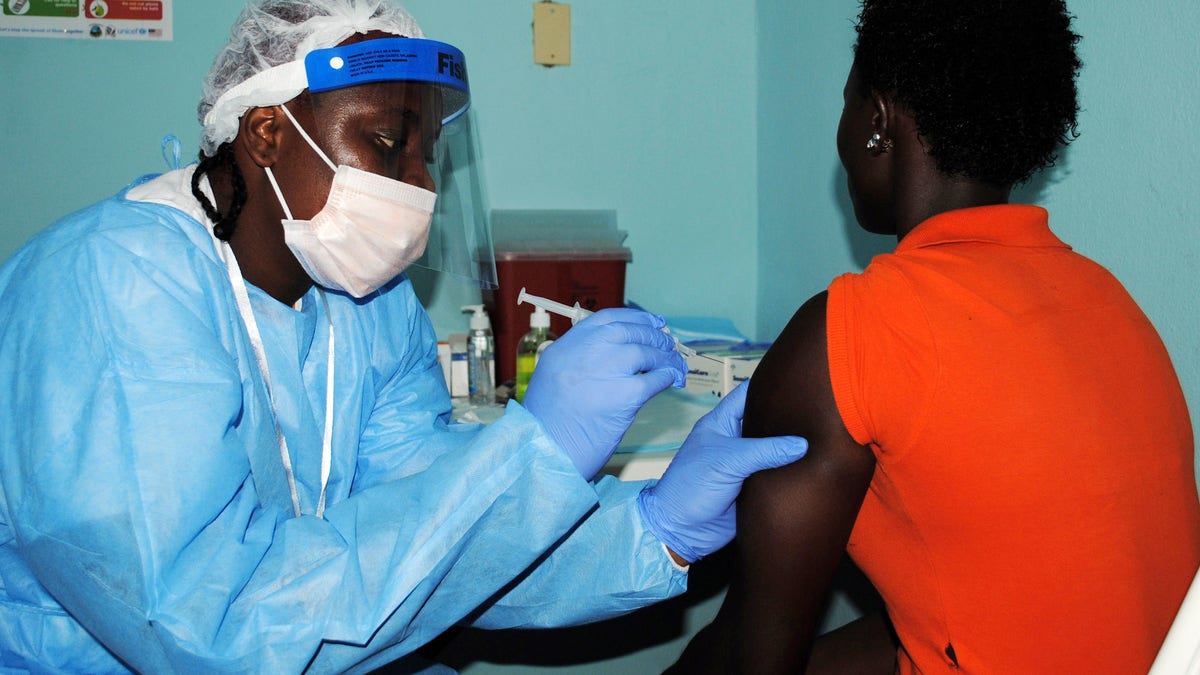
A health worker injects a woman with an Ebola vaccine during a trial in Monrovia, February 2, 2015. REUTERS/James Giahyue
LONDON – Hundreds of possible contacts of eight people infected with Ebola in Guinea have been vaccinated with an experimental Merck vaccine to try and halt a flare-up of the deadly disease, the World Health Organization said on Friday.
The United Nations health agency's office in Guinea said more than 1,000 contacts of the eight latest Ebola cases have been identified and are under medical observation.
In a so-called "ring vaccination" approach, the WHO said almost 800 people have been vaccinated over the past week, including 182 who are considered to be high-risk contacts.
The re-emergence of Ebola in Guinea is the first since the major outbreak in the country was declared over in December 2015. In the flare-up, there have been eight cases, seven of them fatal, since late February. The WHO said six of the dead were from three generations of the same extended family.
Ebola, a hemorrhagic fever, has killed more than 11,300 people in Guinea, Sierra Leone and Liberia since emerging in Guinea in late 2013 and causing an unprecedented 20-month-long epidemic.
The WHO said earlier this week that all original chains of virus transmission had now ended, although new clusters of infections would continue to occur due to reintroductions of the virus. The Ebola virus is known to persist in the semen of male survivors for a year or more.
Merck's VSV-EBOV vaccine was shown in a clinical trial last year to be highly effective in preventing Ebola infection. It has since been used in Sierra Leone to contain a flare-up.
The "ring vaccination" strategy involves swiftly vaccinating anyone who has come into contact with a person infected with Ebola, as well as contacts of theirs.
The WHO said it had a team of 75 staff members working in the affected areas to support the government-led response, including epidemiologists, surveillance experts and infection prevention and control experts.




















